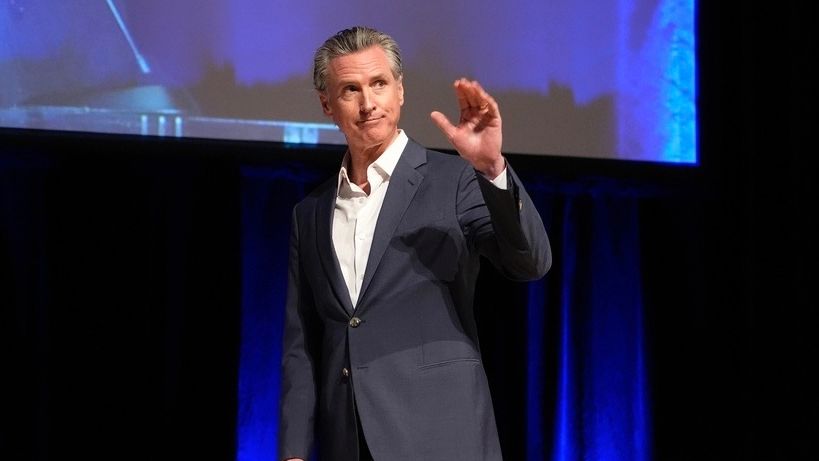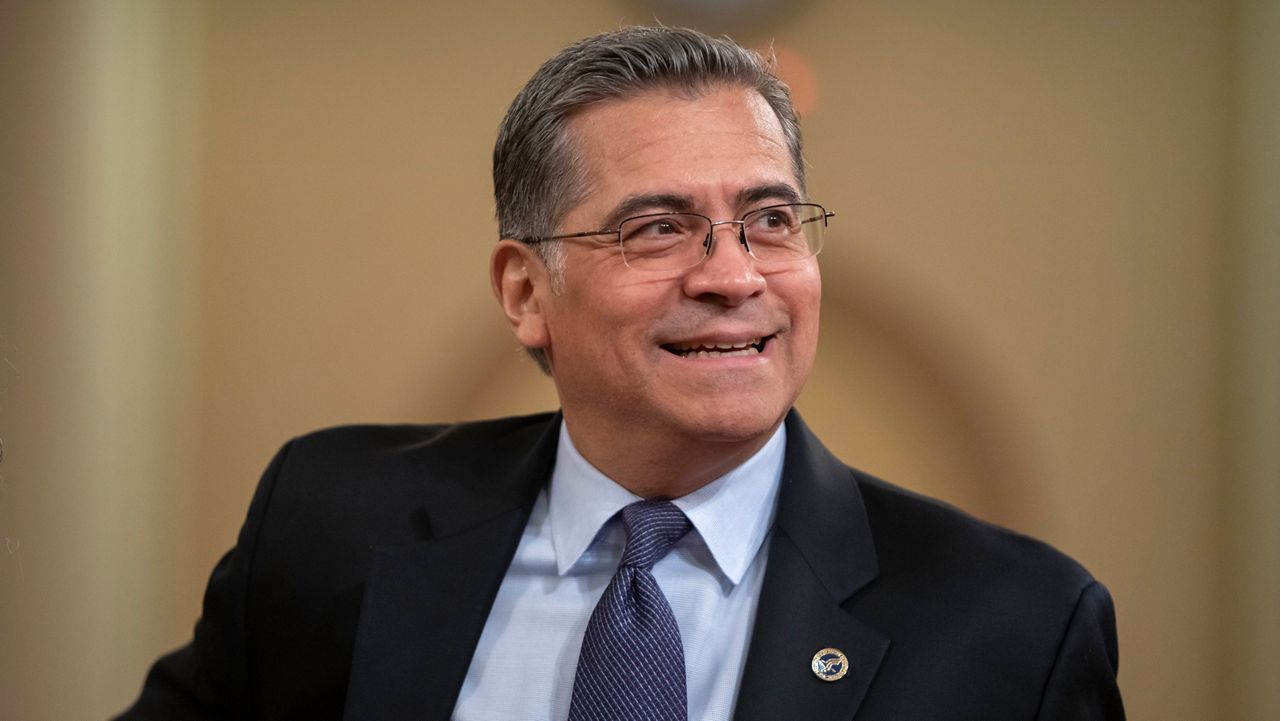Rep. Katie Porter made a splash in Washington when she flipped her district from Republican control in the November 2018 election’s Democratic “Blue Wave.” Though her time in Congress is winding down far sooner than one might have expected, she is leaving with no regrets, staying true to who she says she is at her core.
“When I launched my first campaign, I decided not to take corporate PAC money. And I've never looked back,” Porter said in an interview with Spectrum News. “When I did that, a lot of people said, ‘you won't have the resources, you won't be able to hold on to your seat.’ But I did that, time and time again. And so I think I've provided a model that you can be true to your principles even while representing a swing area.”
Porter, once considered a rising star in the Democratic party, gave up her House seat to run for Senate, owing to a California rule stating that candidates can only appear on the ballot for one office. But last month, fellow Rep. Adam Schiff, D-Calif. and former baseball star and Republican candidate Steve Garvey secured the top two spots on the ballot in the state’s primary, boxing out Porter.
“I'm really proud of the campaign we ran, and particularly proud of elevating some of the issues that I think the Democratic Party wasn't focusing on,” said Porter looking back at her campaign. “When I launched my campaign a year and a half ago for the U.S. Senate, I talked about housing as my number one issue. By the time Election Day came around, that was [Schiff’s] number one issue — and that's really important, because that is the biggest problem facing California. And that's why we're having trouble retaining young people, attracting businesses to our state.”
“I've always been concerned about the influence of big money in politics, particularly money that isn't disclosed. And that was a big factor in this election in the final month, we were outspent three to one. And a lot of the funding of that money wasn't disclosed until after the election. And I don't think that's how our democracy should work.”
Porter came under fire in the days following the primary election for a post on social media in which she wrote that “Because of you, we had the establishment running scared — withstanding 3 to 1 in TV spending and an onslaught of billionaires spending millions to rig this election.” Porter has consistently been critical of “big money” in politics — especially money she calls “undisclosed” — saying that kind of spending isn’t “how our democracy should work.”
She has since expressed regret for using the word “rig,” opening up the suggestion of malfeasance, but some have expressed concern her use of the word gives validation to those still challenging the 2020 election results — namely former President Donald Trump, the presumptive GOP presidential nominee.
California, she said, has “incomparable” election integrity, and has no doubt the vote count was correct, but ad spending by billionaires “in the waning days of an election does influence our politics.”
“Obviously, I wish I'd used a different word, because the focus should be on the problem — a problem that has only gotten worse after the Citizens United decision, a problem that Congress has been unable to fix or address — and it's a major reason that voters are skeptical about whether they can their voice can actually be represented in Washington, regardless of who they vote for, is they feel like too many politicians are bought and paid for.”
With the Senate race behind her, Porter has endorsed Schiff, and she is throwing the support of her Truth to Power Leadership PAC behind Democratic candidates in key California House races, including Will Rollins in California’s 41st district, Derek Tran in California’s 45th district, and Dave Min, who is running to be Porter’s successor in California’s 47th.
Each of the candidates, she said, refuses to take corporate political action committee donations, and they all have pledged to work on passing a ban on congressional stock trading — all in line with Porter’s beliefs. She’s also planning to hit the campaign trail for the three Southern California candidates.
Min, whose California State Senate district overlaps with CA-47 already represents about 80% of their congressional district. “And the reason I'm supporting Dave is that I'm proud of his voting record. He has been a champion to protect our coasts, making sure that we're preventing offshore drilling that causes oil leaks, like we've seen in Orange County, and also working on gun violence prevention, which is an issue where Washington has failed to act.”
Porter said looking ahead to November, she is concerned about voter turnout from the midterms.
“One of the things I would encourage Adam [Schiff] to do, and I think the Democratic Party writ large, is to look at the turnout in this primary and see that we had very low turnout among independent voters, among people of color, among voters under 50,” Porter said. “That is a challenge for us going into November. So one of the ways I hope to be helpful to Democrats is to help engage and turn out those voters.”
There’s still eight months left in her term, and Porter says she plans to throw herself into legislation during her remaining time in Congress, working on ethics legislation and a bill that would require members to disclose who they're meeting with for starters.
“We should know, who has our representative's ear, who are they listening to?” she said.
When asked about her future political ambitions, if any, Porter played coy. Instead, she said she’s excited to get back to teaching at the University of California, Irvine during the spring 2025 semester.
“I've been focusing on what I'm going to teach in the spring because I have class prep to do and getting those courses advertised,” said of her to-do list. “I'm looking forward to being back in that classroom and so ready to go push on through the election, help win some races.”









